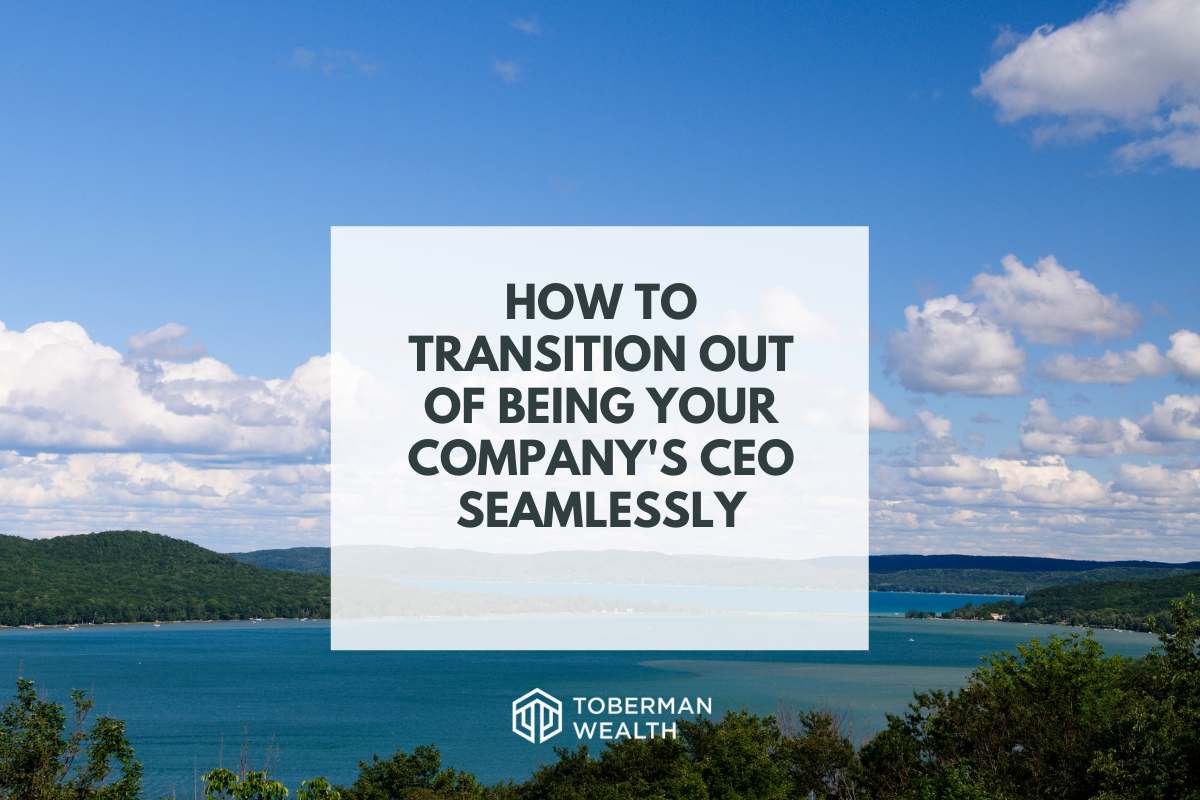How To Transition Out Of Being Your Company’s CEO Seamlessly
You built your business from the ground up. Naturally, you’re used to being the captain of the ship. But a time comes when you’ll need to step down and pass your responsibilities to someone else.
How does a small business owner successfully transition out of being the CEO?
With good planning, clear communication, and the right successor, it’s possible to create a smooth transition. Planning for your transition early is incredibly impactful on your business’ success and your personal well-being.
Here are a few tips to consider if you’re thinking about stepping down as CEO anytime soon.
Set Your Sights on Your Legacy
Your business is a significant part of your legacy, so it’s essential to think about what you want to leave behind.
As you consider stepping down as CEO, ask yourself, “ What do I hope for the business’ future?”
-
Do you foresee a certain amount of growth or expansion?
-
Is there a new direction or opportunity to explore?
-
How can the company continue to improve?
-
What role do you see yourself playing in these transitions?
Identify what goals you have yet to accomplish at your company and use them as a first step in establishing a roadmap toward your exit. You don’t want to step away with regrets, and creating tangible milestones now helps ensure that doesn’t happen.
If there are some long-term goals that you can’t accomplish during your time as CEO, use them to help steer your successor in the right direction.
Choose Your Successor
Over the last few months, we’ve talked a lot about the importance of identifying a solid successor. That’s because choosing your replacement is one of the most meaningful decisions you’ll make in your exit plan.
Your successor will be at the helm of your business, steering it forward. At a time when people are unsure about the future, they must be steady and resilient. To start determining who may best fit this role, explore your and the company’s values. After your exit, the person who takes the lead should embody these values wholeheartedly.
You may start your search by considering family members, as many small business owners do. While this is a great place to start, try not to limit yourself to considering only family.
Depending on their interest or involvement with the business thus far, family members might not make the most suitable leaders. You want somebody well-versed in your offerings, passionate about your business’ success, and ready to take over your day-to-day responsibilities.
Outside of the family, look to other founding partners, colleagues, industry leaders, or high-level managers. Keep an open mind, talk at length with your candidates, and take your time making this decision—it’s a big one!
Create a Transition Plan
Once you’ve selected a successor, it’s time to lay out a clear transition and training plan. The more detail and direction you provide now, the better prepared your successors will be.
Start by asking yourself questions like:
-
What will this person’s responsibilities be in their first year as CEO? What about each year after that?
-
How will I transition my responsibilities over to them? Will we make a gradual transition, or is it better to hand the reins over quickly?
-
Should they go through additional training before taking on this role?
-
What can I do to help the rest of my employees see them in a leadership capacity?
One of the most effective things to create a seamless transition is getting key leadership and stakeholders on board with your replacement. Their support plays a vital role in assuring and exciting employees about this transition.
Confusion and misunderstanding from the top creates a ripple effect, which agitates employees and makes them feel less confident in their new leadership. But when your management team communicates clearly and answers questions, the rest of your company feels confident and prepared for the transition.
Know What You Want Your New Role To Be
Before bringing someone else on, you must know what you want to do next.
Think about a couple of things, like what you don’t want to keep doing. Some business owners don’t like managing people or making major financial decisions, for example.
Once you identify what you’d like taken off your plate, focus on what you enjoy. Maybe you’re interested in serving as a consultant or offering project-based work for the company. Or, you may want to put your years of experience building the business toward serving as an advisor and assisting with big picture decisions.
Identifying what you want and don’t want to be involved with is the first step in creating a custom plan that works for you.
Give Yourself The Time You Need
A good transition plan takes time, thoughtfulness, and attention to detail. The more you put into your exit strategy, the less stressed and more prepared everyone will be. A seamless transition is achievable, but not without proper planning.
At Toberman Wealth, we can create a comprehensive plan together. Our team is happy to work alongside you, your stakeholders, and your successor in developing and executing a smooth transition plan.
Reach out anytime to get started with a fee-only Certified Financial Planner (CFP®).
Reserve Your Spot On The Calendar
Craig Toberman is a Partner at Toberman Becker Wealth – a fee-only, fiduciary financial advisor based in St. Louis. He assists families and businesses with strategic financial planning and long-term wealth management. He has over a decade of experience in financial services and has crafted custom financial plans for hundreds of families and businesses.

